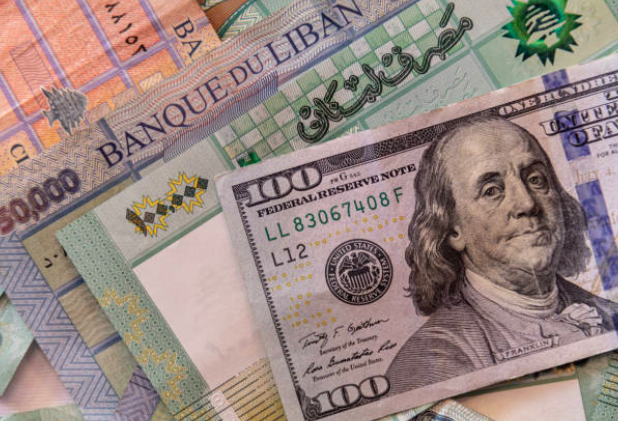What is the Future of Lebanon?

By: Ghassan Michel Rubeiz / Arab America Guest Contributing Writer
Lebanon’s Political Front
The stability of Lebanon has been rapidly declining for several years. Today, the Lebanese wonder if they live in a “failing” or a “failed” state. The term “Failing” means “gravely threatened, whereas “failed” means the threats are too grave to be reversed. This small Arab country used to be the destination of leisure in the region. A center of international business and cultural exchange.
To start with, Lebanon has been without a President for the last nine months and a half. The parliament has tried twelve times over that period to elect a head of state. However, the process has been inconclusive. The country is also in need of a new prime minister. A post that is designated by the president and approved by the parliament.
The economy is in worse shape than the political situation. The national debt is overwhelming: 90 billion US dollars and twice the gross national product. Local banks are not solvent; customers have no free access to their deposits. Poverty is widespread. The local currency has lost 98% of its value over the past three years. Perhaps, the more serious loss is trust in politicians and hope of the citizens in their future.
But the Lebanese still have the capacity to bring back their country to life. None of the above-mentioned problems are unsolvable.
Reshaping the Economy
The electoral process is not in dispute. Citizens do not expect a game-changing head of state. People are used to having mediocre politicians at all levels. It seems at this stage, that what is needed for the Lebanese parliament to elect a new president is a tacit agreement between Saudi Arabia and Iran. The two regional superpowers, each backing one of the two local sides of the conflict. The regional agreement is needed on a leadership figure. The chosen candidate would have to be very flexible: tolerate Hezbollah’s strong military capabilities The Resistance. While, at the same time, live with Saudi and American interests. Finding such a politically “gifted” figure depends largely on how close Tehran and Riyadh get in their latest fruitful efforts to find common political ground. A new prime minister would most likely be designated soon after a president is elected.
With a new president and a new cabinet, the banking system could be reformed and reactivated. Financial aid from the Arab Gulf and the International Monetary Fund would start the process of economic recovery. With a large and rich Diaspora, Lebanon would be able to recover the economy partially over a period of five to ten years. As long as Lebanon could attract tourists, remain safe for family visits from abroad, and allow farmers, workers, and students to get engaged, the economy would recover sooner than expected.
However, the situation in Lebanon is likely to stay precarious. Regardless of the level of economic recovery and the resumption of governance. Lebanon will walk on crutches for possibly another generation.
Social Issues
Lebanese society will remain saddled by harsh realities for an indefinite period of time. There are at least three solid obstacles to desired change: an overload of refugees, strong regional intervention, and sectarian identity. The sectarian mindset is the hardest element to change because its main cultivator, the clerical establishment, is not yet recognized as a major participant in Lebanon’s dysfunction.
The refugee crisis contributes immensely to the economic and political crisis. Every third resident in Lebanon is a refugee -from Palestine of the 1948 war with Israel. Also from Syria of the 2011 uprising. To repatriate a million Syrians would require a breakthrough in Syria’s politics and massive reconstruction and reconciliation. This does not seem to be on the horizon. Similarly, to repatriate several hundred thousand Palestinians in a future Palestinian state would require a comprehensive regional settlement with an occupying power (Israel) pursuing more land grabbing. Current political dynamics do not look promising for Palestinians inside or outside the Occupied Territories. That leaves Lebanon, a small and weak state, carrying a disproportionate demographic burden.
Regional Circumstance
As for the regional intervention factor, in its wider milieu, Lebanon seems to be an “inconvenient” state. Israel considers Lebanon the host of Hezbollah, a threatening mobilized force on its borders. According to Tel-Aviv, The Resistance “serves as a proxy for Iran”. As for the Arab states, they view Lebanon a source of instability, both physical and ideological.
In a region where autocracy is the norm, neither a semi-functioning democracy nor a revolutionary regime is tolerated. As long as the region remains ideologically regressive, there is no space for a state with a weak government living side-by-side with a mobilized Resistance movement. The region treats Lebanon as a playground in good times, and in bad times, a dumping ground for displaced populations.
Religious Dominance
The third stumbling block against the full recovery of Lebanon has to do with the dominance of religion in personal and political affairs. For centuries, family laws, elections, leadership posts, education, and employment, all such important aspects of living, have been affected (or regulated) by numerous religious authorities.
The Lebanese may not be that religious in their practice of worship, but they are victims of sectarian socialization. In Lebanon, religion tends to give its adherents more security than spiritual development. In fact, deep and enlightened commitment to one’s religion is often associated with sympathy with people of other faiths, not the reverse.
To secularize identity and turn Lebanese society into real citizens rather than residents with sectarian loyalties, religious authorities have to be regulated by the state. It is hard to imagine Lebanon introducing civil and interfaith marriage, secular elections, a national system of education, and other features of liberal democracy. It would take a cultural revolution to change the sectarian mindset of the Lebanese citizen. Absent a political coup – which would set up an interim military regime with smart planning for an eventual democracy- Lebanon would have to wait for radical reform in the entire region.
Under unstable regimes, sectarian politics is self-perpetuating because it delivers the security of the religious tribe, rather than the national protection of the state. Religious authority is immune from criticism; its manipulative politics is invisible: misguided clerics use explosive symbols, not bullets; invade minds not land; build walls, not bridges.
Conclusion
In conclusion, it does not take a miracle to control corruption, elect political leaders on time, and activate the economy, but it takes more effort and time to repatriate refugees of tragic wars, stop regional intervention in an unstable state, and alter sectarian mindsets.
With good luck and strategic reforms, Lebanon could recover partially. To be united, liberated, and empowered, this country needs much more planning and suitable regional change.
News about Lebanon should be sobering to America.
Ghassan Rubeiz is the former Middle East Secretary of the World Council of Churches. Earlier he taught psychology and social work in his country of birth, Lebanon, and later in the United States, where he currently lives. For the past twenty years, he has contributed to political commentary and delivered occasional public talks on subjects related to peace, justice, and interfaith. You can reach him at rubeizg@gmail.com
The views and opinions expressed in this article are those of the author and do not necessarily reflect the position of Arab America.
The reproduction of this article is permissible with proper credit to Arab America and the author.
Check out Arab America’s blog here!








